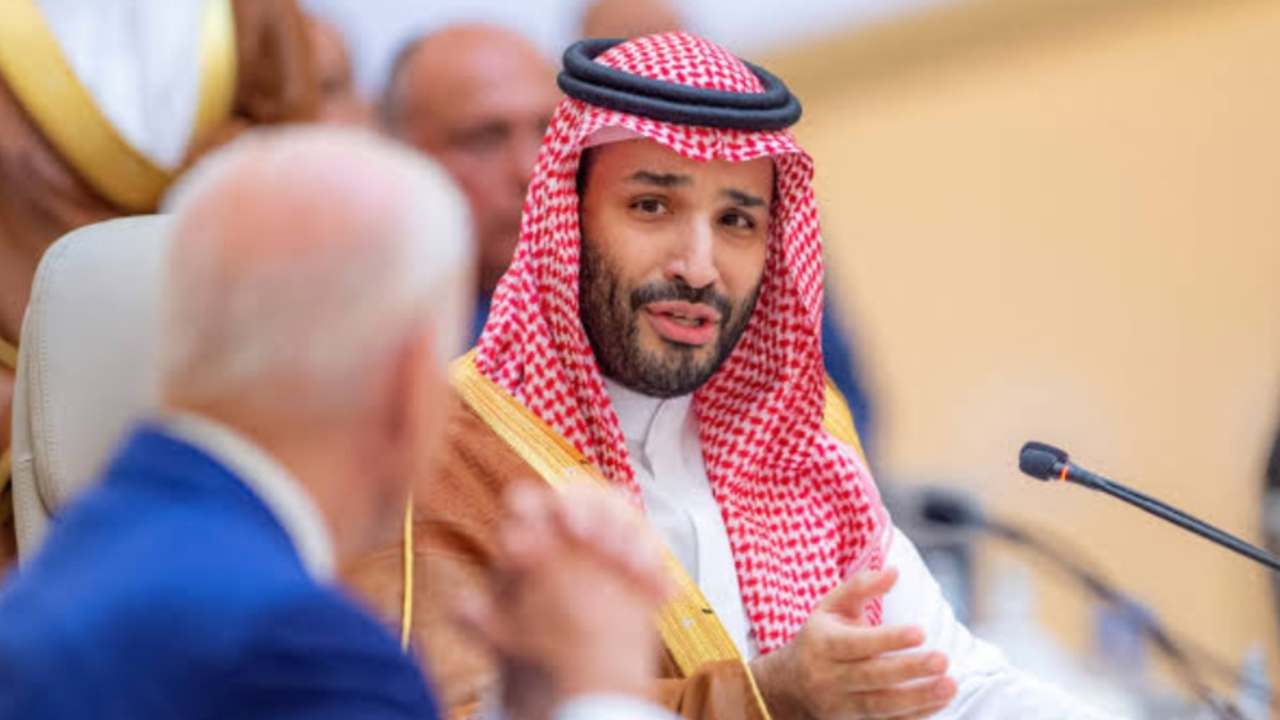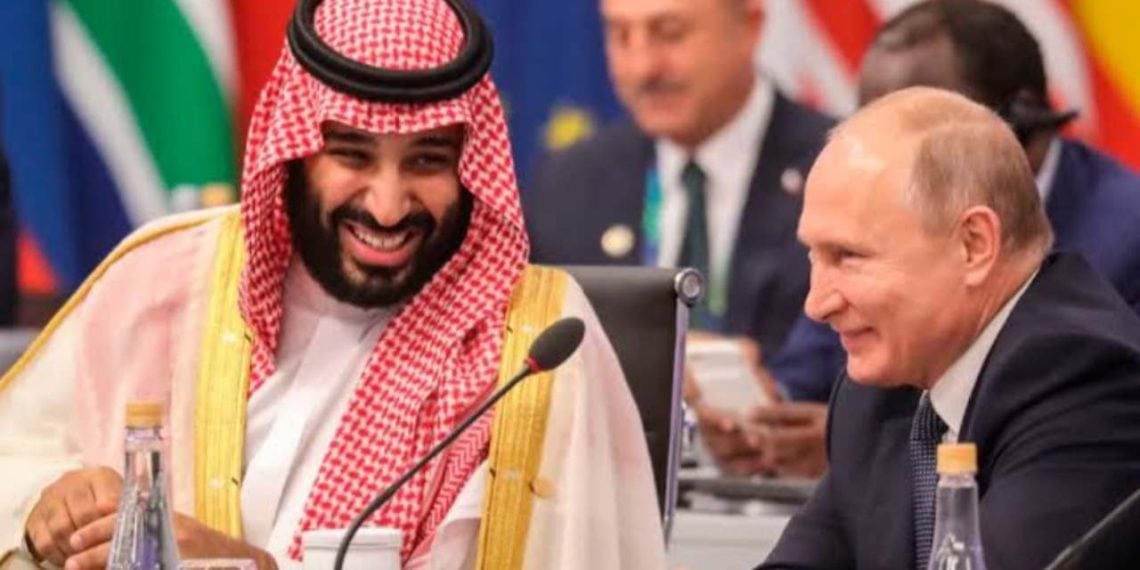Saudi Arabia is open to receiving a political commitment from Israel for the establishment of a Palestinian state, opting for a less binding agreement. This move aims to secure a defense pact with Washington before the upcoming U.S. presidential election, according to three sources.
Despite months of U.S.-led diplomatic efforts encouraging Saudi Arabia to normalize relations with Israel and extend recognition for the first time, Riyadh halted these discussions in October. This decision was influenced by increasing Arab discontent over the conflict in Gaza.
Saudi Arabia is intensifying efforts to enhance its security and counter potential threats from Iran. This strategic move aims to advance the kingdom’s ambitious economic transformation and attract significant foreign investments, as reported by two regional sources.
In a bid to revive discussions on recognizing Israel and reestablish the U.S. pact, Saudi officials have communicated to their U.S. counterparts that they would not demand concrete actions from Israel for the creation of a Palestinian state. Instead, Riyadh is open to accepting a political commitment to a two-state solution, according to two senior regional sources.
The envisioned regional deal, deemed improbable even before the Israel-Hamas conflict, would encounter significant political and diplomatic hurdles. Uncertainty surrounding the outcome of the Gaza conflict adds further complexity.
A potential pact offering U.S. military protection to the world’s largest oil exporter in exchange for normalizing ties with Israel holds the potential to reshape the Middle East. This alliance between historic adversaries, Riyadh and Washington, becomes particularly crucial as China expands its influence in the region.
A normalization agreement would enhance Israel’s defenses against its arch-rival, Iran, and present U.S. President Joe Biden with a significant diplomatic triumph leading up to the November 5 presidential election.
Privately, Saudi officials have urged Washington to encourage Israel to cease the Gaza conflict and endorse a “political horizon” for a Palestinian state. In return, Riyadh commits to normalizing relations and supporting the reconstruction of Gaza, as shared by a regional source.
“The message from the kingdom to America has been: ‘Stop the war first, allow humanitarian aid and commit to a just and lasting solution to give the Palestinians a state’,” said Abdelaziz al-Sagher, head of the Gulf Research Center think-tank in Jeddah, who is familiar with the ongoing discussions. “Without it, Saudi Arabia can’t do anything.”
The challenge lies in Israeli Prime Minister Benjamin Netanyahu’s firm rejection of any U.S. and Arab aspirations for a Palestinian state after the conclusion of the Gaza war. Throughout his political career, Netanyahu has consistently opposed the idea of Palestinian statehood.
“Normalisation does require really – if not legally, at least politically – a commitment from the Israelis that they are open to a two-state solution,” said one of the senior regional sources familiar with Saudi thinking.
“If Israel stopped its military offensive on Gaza – or at least declared a ceasefire – it would make it easier for Saudi Arabia to go ahead with the deal,” the person said.
The Saudi government’s communication office did not respond to requests for comment.

The Complex Pathway To Palestinian Statehood
Riyadh’s diplomatic push stems from the urgency to secure a deal while U.S. Democrats control the White House and the Senate. Heightened concerns about Iran’s military influence in neighboring Iraq and Yemen, as well as Lebanon, Syria, and Gaza, further drive Saudi Arabia’s efforts.
Despite past Democratic resistance, President Biden’s interest in a deal creates a favorable window for Congressional approval. Saudi officials, not specifying the details of an acceptable “pathway” to a Palestinian state, maintain flexibility to negotiate a non-binding agreement with Israel.
There’s no effort to revive Saudi Arabia’s longstanding policy proposing normal ties with Israel for a withdrawal from 1967-occupied territories. Despite this, Arab diplomats, including those from Riyadh, convey to U.S. Secretary of State Antony Blinken that concrete U.S. pressure on Israel is crucial for progress on Palestinian statehood.
While talks between Washington and Riyadh continue on aspects like nuclear cooperation and security guarantees, the successful outcome depends on Israel aligning with a pathway to Palestinian statehood and ceasing the conflict in Gaza.
“U.S. diplomatic efforts are currently focused on the immediate crisis,” a White House National Security Council spokesperson said when asked about the status of normalisation.
“But we remain committed to the long-term goal of a more stable, prosperous, and integrated Middle East region, including through normalisation and advancement of a two-state solution.”
As U.S. Secretary of State Antony Blinken plans to revisit the region soon, a senior Israeli official, speaking anonymously, asserts “zero chance” of Netanyahu discussing a Palestinian state. However, the official acknowledges the potential for Saudi Arabia and others to engage in such discussions.
“As Israel has made clear, the Palestinians will not have sovereignty in terms of being able to have an army or to enter treaties with Iran or to threaten Israel in any way.”
Netanyahu emphasized last month that Israel requires security control over all territory west of the Jordan River in any foreseeable arrangement. Indicating the sensitivity of the statehood issue within the Israeli government, normalization talks are exclusively managed by Netanyahu and his key confidant, Strategic Affairs Minister Ron Dermer.
Diplomatic Crossroads: Navigating Tough Decisions In The Middle East
A U.S. source indicates that Washington perceives Riyadh’s eagerness for U.S. defense guarantees might lead to flexibility regarding Israel’s commitment to a Palestinian statehood pathway. One potential move could be Netanyahu reconsidering his opposition to the significant involvement of the Palestinian Authority in post-war Gaza.
If successful, establishing ties with the Sunni Muslim heavyweight of the Arab world would mark Netanyahu’s major diplomatic triumph. Simultaneously, for Palestinians, normalization would rekindle statehood aspirations with full Arab support.
“For the first time, I feel that there is a unified, unanimous, and sincere Arab agreement on the two-state solution to resolve the conflict,” said Mohammed Dahlan, former security chief from the Palestinian Fatah faction, who is now based in the United Arab Emirates (UAE).
“The question is whether the United States is serious and capable of weighing in on Netanyahu to achieve that goal.”
The Biden administration perceives Netanyahu’s willingness to sustain Israeli-Saudi normalization but notes his unyielding stance on Palestinian concessions, partly due to potential instability within his far-right coalition. During Blinken’s recent Middle East trip, the demand for a statehood pathway was emphasized across Turkey, Jordan, Qatar, the UAE, and Saudi Arabia to present a unified regional stance.
Blinken urged Israel to make tough decisions for long-term security and regional integration. Amid discussions about a three-stage ceasefire and hostage release in Gaza, a pause in hostilities could offer Crown Prince Mohammed bin Salman the chance to pursue a deal.
“Biden is extremely keen on the agreement. Saudi Arabia is extremely keen on the agreement,” said one of the senior regional sources close to Saudi thinking. “These two parties recognise that time is very tight and they need to do it soon, but the Israelis are making it difficult.”
Time Running Out: Challenges And Prospects In U.S.-Saudi Relations
If Washington fulfills Riyadh’s demands for a defense pact, support for Saudi’s nuclear program, and secures an acceptable compromise on statehood from Netanyahu, the crown prince might seize the opportunity, according to a source. Despite complications and delays caused by the Gaza war, Riyadh’s primary focus remains the defense agreement, with normalization with Israel seen as a means to facilitate a deal.
Despite the diplomatic thaw between Saudi Arabia and Iran sponsored by China, Riyadh is determined to avoid a recurrence of the 2019 strikes on its oil facilities, blamed on Tehran. Discussions about a defense pact and Israeli normalization began during Biden’s 2022 visit to repair strained ties over Khashoggi and the cessation of military assistance in Yemen.
As the U.S. approaches the presidential election, gaining traction for a U.S.-Saudi security pact in Congress becomes more challenging. Tying defense guarantees to normalization aims to garner support. However, Netanyahu might choose to wait for the election outcome, where a second Trump presidency is anticipated to favor Israeli-Saudi normalization, though the stance on enhanced U.S.-Saudi defense ties remains uncertain.




